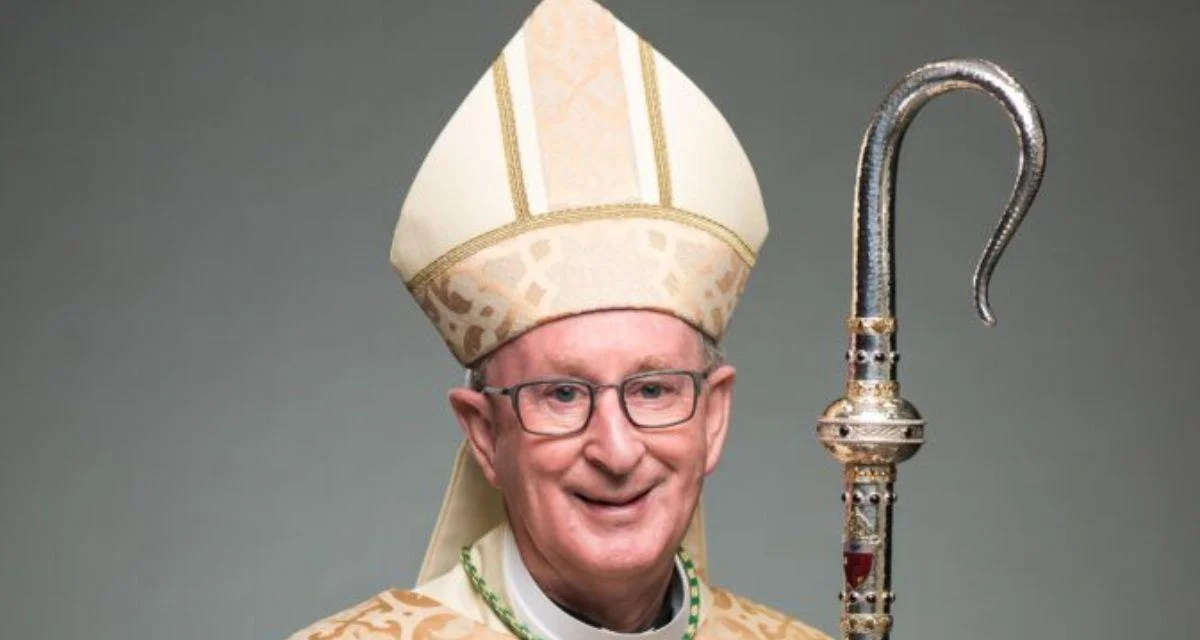
Reverend Joseph E. Kurtz, D.D. Bishop | Archdiocese of Louisville
By Greg Erlandson, Lori Dahlhoff, OSV News
Voting is a significant responsibility for citizens, and the church teaches that it is one of three primary duties alongside paying taxes and defending the country. These responsibilities require prioritizing societal good over individual desires. Catholic voters are encouraged to consider whether the needs of the weakest and most defenseless are being addressed.
In the voting booth, Catholics have an opportunity to promote the common good by applying their faith's values and teachings to societal issues.
**Does the church tell me whom I should vote for?**
The church does not endorse specific candidates or parties. Catholics are urged to use their judgment and follow their consciences, applying the teachings of Jesus Christ and core faith values in their choices.
**How does my Catholic faith help me make these choices?**
Catholics are taught to form their consciences based on Catholic teaching. The U.S. bishops' 2015 document "Forming Consciences for Faithful Citizenship" (FC) states that conscience is "the voice of God resounding in the human heart." Catholics must develop prudence to discern true good and choose appropriate means of achieving it through studying Scripture, church teaching, reason, and prayer.
**What about the separation of church and state? Can the church ask me to vote according to my Catholic principles?**
The founders intended to prevent any particular denomination from becoming an official religious body but did not forbid religious organizations from addressing important matters. Catholic moral tradition is based on natural law applicable to everyone.
**What are the key principles that should guide us as we enter the voting booth?**
Four principles of Catholic social doctrine are essential: promoting human dignity; supporting family and subsidiarity in institutions; working for the common good; and acting in solidarity with concern for all, especially the poor and vulnerable.
**Is there anything Catholics must always reject?**
Catholics must reject "intrinsically evil" actions such as taking innocent human life. The church opposes abortion, euthanasia, human cloning, destructive research on embryos, genocide, torture, targeting noncombatants in terror or war acts, racism, excessive material consumption, unjust discrimination, and narrowing religious freedom definitions.
**If all these are priorities, what is most important?**
While many issues are crucial, they are not morally equivalent. The destruction of innocent human life from conception until natural death is always wrong. Other significant concerns include war, racism, care for the poor and immigrants.
**But if we must keep all these principles in mind, is there going to be anyone who we can vote for?**
Often voters face inadequate political agendas. Prudence helps determine which candidate aligns best with church teaching and formed consciences despite imperfect choices.
**If no single party or candidate conforms to our key Catholic principles in a given election, what should we do?**
One cannot vote for a candidate favoring intrinsically evil acts intending to support that position but neither can opposition justify ignoring other moral issues. Voting for a candidate with unacceptable positions may be permissible only for grave moral reasons with a duty to oppose those positions actively.
Some Catholics might feel compelled not to vote at all under certain circumstances guided by conscience and moral teachings.
**What can I do to prepare to vote?**
Catholics should inform themselves about church teachings using resources like The Catechism of the Catholic Church. They should also educate themselves on issues through Catholic press and candidate statements while seeking input from respected Catholics. Prayer is essential for guidance.
For more information on Catholic teaching related to political life visit www.faithfulcitizenship.org where bishops offer detailed reflections.


 Alerts Sign-up
Alerts Sign-up